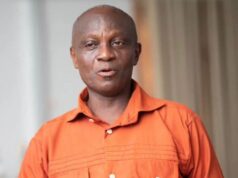Ghana’s fight against corruption has been dealt another setback after the country was ranked as the second most corrupt African nation behind South Africa.
The corruption perception index by the Transparency International stated about 71 percent of people living in Ghana say corruption has increased over the last twelve months.
Most governments across Africa are also seen as failing in their duty to stop the abuse of power, bribery and secret deals, according to the new opinion poll.
In the report People and Corruption: Africa Survey 2015, part of the Global Corruption Barometer, Transparency International partnered with Afrobarometer, which spoke to 43,143 respondents across 28 countries in Sub-Saharan Africa between March 2014 and September 2015 to ask them about their experiences and perceptions of corruption in their country.
The majority (58 per cent) of Africans in the surveyed countries, say corruption has increased over the past 12 months. In 18 out of 28 countries surveyed a large majority of people said their government is doing badly at fighting corruption.
Despite these disappointing findings, the bright spots across the continent were in Botswana, Burkina Faso, Lesotho and Senegal. Citizens in these countries were some of the most positive in the region when discussing corruption.
Ghana is closely followed by oil rich Nigeria making up the top three worst performing nations in the corruption index.
For the first time, people reported business executives as highly corrupt. Business ranked as having the second highest levels of corruption in the region, just below the police.
The police regularly rate as highly corrupt, but the strongly negative assessment of business executives is new compared to previous surveys. Business was followed by government officials, tax officials, judges and magistrates, members of parliament, local government councilors, office of the Presidency, traditional leaders and religious leaders.
22 per cent of people that have come into contact with a public service in the past 12 months said they paid a bribe.
Of the six key public services that we asked about, people who come into contact with the courts and police are the most likely to have paid a bribe.
Across the continent, poor people who use public services are twice as likely as rich people to have paid a bribe, and in urban areas they are even more likely to pay bribes.
“Corruption creates and increases poverty and exclusion. While corrupt individuals with political power enjoy a lavish life, millions of Africans are deprived of their basic needs like food, health, education, housing, access to clean water and sanitation. We call on governments and judges to stop corruption, eradicate impunity and implement Goal 16 of the Sustainable Development Goals to curb corruption. We also call on the people to demand honesty and transparency, and mobilize against corruption. It is time to say enough and unmask the corrupt,” said Transparency International Chair José Ugaz.






















